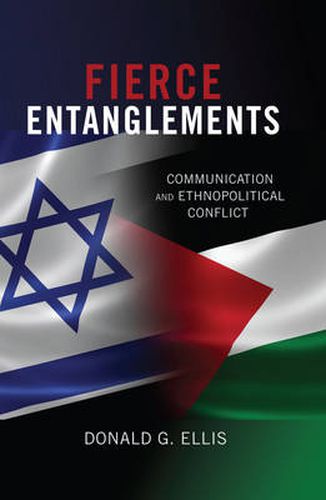Readings Newsletter
Become a Readings Member to make your shopping experience even easier.
Sign in or sign up for free!
You’re not far away from qualifying for FREE standard shipping within Australia
You’ve qualified for FREE standard shipping within Australia
The cart is loading…






The third in a trilogy on communication and ethnopolitical conflict, this book focuses on multicultural groups significantly divided by politics and religion. These groups have become fiercely entangled ; that is, they are inescapably politically, socially, and culturally interdependent. Using the Israeli Palestinian conflict as the primary example, Ellis offers a timely analysis of how communication can begin to untangle these groups. Group differences lead to cultural differences - some of the most difficult aspects of a conflict. This book examines the nature of group differences as well as solutions-based conflict resolution that is embedded in theories of communication and democracy.
Ellis argues that resources are unequally distributed and differences are the norm. Politics is used to manage these differences and although communication is the fundamental tool of conflict management, there are other components in resolving conflicts that complement communication approaches. Dialogue and deliberation are posed as workable responses to untangling these differences and managing intractability.
$9.00 standard shipping within Australia
FREE standard shipping within Australia for orders over $100.00
Express & International shipping calculated at checkout
The third in a trilogy on communication and ethnopolitical conflict, this book focuses on multicultural groups significantly divided by politics and religion. These groups have become fiercely entangled ; that is, they are inescapably politically, socially, and culturally interdependent. Using the Israeli Palestinian conflict as the primary example, Ellis offers a timely analysis of how communication can begin to untangle these groups. Group differences lead to cultural differences - some of the most difficult aspects of a conflict. This book examines the nature of group differences as well as solutions-based conflict resolution that is embedded in theories of communication and democracy.
Ellis argues that resources are unequally distributed and differences are the norm. Politics is used to manage these differences and although communication is the fundamental tool of conflict management, there are other components in resolving conflicts that complement communication approaches. Dialogue and deliberation are posed as workable responses to untangling these differences and managing intractability.